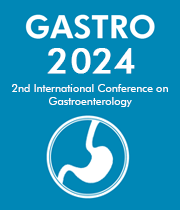Title : From hole to whole: A case report on recto-neovaginal fistula resolution with endorectal advancement flap in gender affirming surgery complications
Abstract:
Recto-neovaginal fistulas (RnVFs) following gender-affirming surgery present a significant challenge with limited guidance on optimal treatment strategies. This case report details the successful management of a RnVF using an Endorectal Advancement Flap (ERAF) in a 20-year-old transgender woman who developed the fistula post-gender reassignment surgery. The patient presented with pelvic discomfort, constipation, and rectal bleeding. Initial treatment involved a diverting colostomy to reduce perineal inflammation and protect the neovaginal reconstruction. Examination under anesthesia identified a 1.5cm diameter fistula proximal to the levator complex. The ERAF procedure was performed, resulting in successful fistula closure without complications. Follow-up evaluations confirmed flap healing and symptom resolution.
This case highlights the potential of ERAF as an effective management option for RnVFs, emphasizing the need for a multidisciplinary approach involving both surgical and supportive care to optimize patient outcomes. The detailed documentation of the surgical procedure, postoperative course, and long-term follow-up adds valuable insights into the efficacy of ERAF. However, the retrospective nature and single-case focus limit the generalizability of the findings. Long-term follow-up is necessary to evaluate the durability of the repair and monitor for potential recurrence.
Our report contributes to the limited literature on RnVF management post-gender reassignment surgery, underscoring the importance of tailored treatment strategies considering the unique anatomical and physiological aspects of transgender individuals. The successful use of ERAF in this case supports its viability as a treatment option, informing clinical practice and guiding future research. Future studies should aim to include larger sample sizes and prospective designs to better understand the factors influencing the success of ERAF repair in this patient population. Our experience emphasizes the critical role of a multidisciplinary approach, incorporating expertise from colorectal surgeons and transgender healthcare specialists, in managing complex complications arising from gender-affirming surgeries.
Audience Take Away:
-
The importance of our case report lies in its contribution to the management of Recto-neovaginal fistulas (RnVFs) in transgender individuals via Endorectal Advancement Flap (ERAF). With an understanding of the unique anatomical and physiological considerations in this population, including the impact of hormone therapy and surgical interventions, tailored treatment strategies can be developed to optimize outcomes. Our case underscores the significance of a multidisciplinary approach involving colorectal surgeons and transgender healthcare specialists in managing complications of gender-affirming surgeries.
-
Our case report adds to the growing body of evidence supporting the use of Endorectal Advancement Flap (ERAF) as a viable option for repairing Recto-neovaginal fistulas (RnVFs) post gender reassignment surgery, thereby informing clinical practice and guiding future research directions. Future research could focus on prospective studies with larger sample sizes to further elucidate the factors influencing the success of ERAF repair in this patient population.
-
Strengths of this case report include its detailed documentation of the surgical procedure, postoperative course, and long-term follow-up, providing valuable insights into the effectiveness of Endorectal Advancement Flap (ERAF) in managing Recto-neovaginal fistulas (RnVFs). Additionally, the successful closure of the fistula highlights the importance of a multidisciplinary approach, involving both surgical and supportive care, in optimizing patient outcomes. Through this case, we aim to contribute to the existing literature on RnVF management and highlight the role of ERAF as a potential treatment modality.



